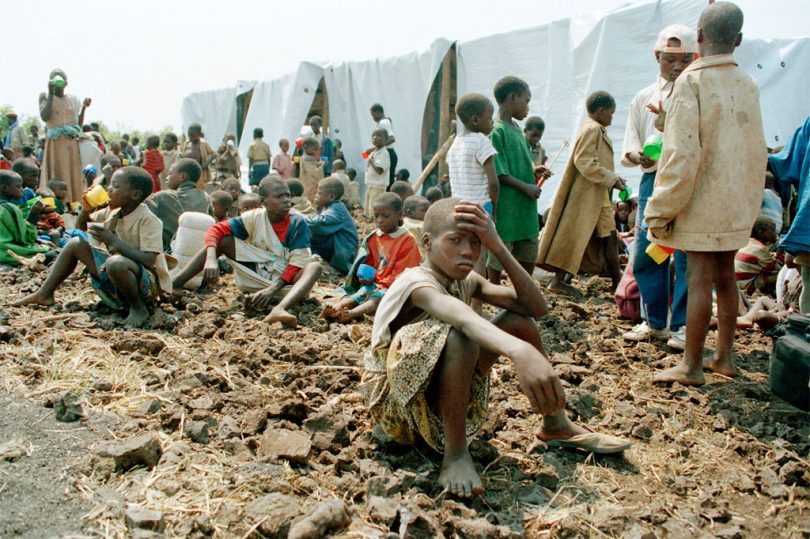The United Nation’s Declaration of International Human Rights says the UN and its Security Council has a responsibility to intervene when international human rights are being breached.
But they haven’t always done this.
Here are five times the UN failed to uphold international human rights law.
- Bosnia (1995)
More than 8,000 men and boys were killed in the town of Srebrenica by Bosnian Serbs, in what was previously a Bosnian Muslim “safe area”, according to the UN Security Council in 1993. An additional 20,000 people were forced out of the area- a process known as ethnic cleansing.
This is one of many Bosnian towns that fell after being considered safe by the Security Council. Principal responsibility was placed on the senior officers in the Bosnian Serb Army, but the UN and its western supporters accepted part of the blame for failing to protect the Bosniak men, women and children.
In 2005 the UN Security-General Kofi Annan described the Bosnian genocide as the worst mass murder on European soil since World War II.
2. Rwandan genocide (1994)
The genocide lasted 100 days, and 800,000 people were killed.
The UN failure in Rwanda is twofold: UN peacekeeping forces failed in their efforts to avoid an outbreak of violence between the Hutu and Tutsi peoples of Rwanda. Subsequently, the UN failed to act in stopping the genocide once it had begun.
The UN had sent what has now been deemed an ‘insufficient’ peace-keeping force to Rwanda in 1993, after tensions between to the ethnic groups threatened to escalate. The UN secretariat and Secretary-General failed to act upon warnings from this peace-keeping team, urging that more help was needed in the country. The UN and international community refused to call the events in Rwanda ‘genocide’ as labelling it such would compel them to take action in the country.
3. Sudan (2004-present)
The “Darfur genocide” refers to the current mass rape and slaughter of Dafuri men, women and children in Western Sudan.
200,000 people are estimated dead and at least 2 million displaced since fighting broke out in 2003.
The UN’s activity here is contentious.
The UN says it and its partners are currently operating the largest aid effort in the world in Darfur and in refugee camps in Chad and the Central African Republic (CAR).” The UN’s Darfur mission is one of it’s largest in the world, with 19,000 troops in Darfur in 2014.
But some are skeptical of the UN’s efficiency.
“I felt ashamed to be a spokesperson for a mission that lies, that can’t protect civilians, that can’t stop lying about it,” Former UN spokeswoman Aicha el Basri told Focus on Africa.
4. Syria (2007-present)
This six year long conflict has led to the largest modern humanitarian crisis. The civil war has now resulted in more than five million Syrian refugees with violence and displacement spreading and affecting neighbouring countries.
The right to protect (R2P) is a global commitment, adopted at the 2005 UN World Summit, however the UN’s Security Council has repeatedly failed to come to an agreement on how to end the bloodshed. Russia and Venezuela voted no to a proposed resolution at a meeting of the Security Council in 2016, while nine countries voted against Russia’s proposed resolution.
The complexity of international relations involved in the conflict renders the UN powerless, leaving no sign of an end to this conflict.

Source: ABC
5. Offshore detention of asylum seekers and refugees (2012-present)
Amnesty International and the United Nation’s High Commissioner for Refugees (UNHCR) has publicly condemned Australia’s treatment of Asylum seekers and refugees, stating it breaches the International Convention Against Torture.
Multiple reports point to widespread physical and mental illness throughout the camps, with experts calling them “mental health factories”.
Seven refugees have died in Australia’s offshore detention camps with several, if not all, preventable. These deaths are accompanied by a plethora of abuse claims. Basic human necessities in the camps like water and basic health care are lacking according to human rights groups which is a clear breach of human rights.
The Australian government has shown a blatant lack of humanity or compassion in locking people up in conditions where people self-harm and even set themselves on fire. This provides a tragically perfect example of how powerless the UN is when a state’s sovereignty can be used as an excuse to violate international human rights.

